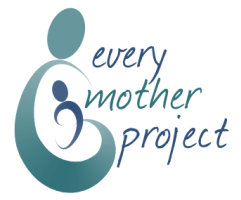Why "perinatal?"
Postpartum depression gets a lot of mention in the news; however, symptoms can appear during pregnancy as well. And women are considered postpartum for a year after a birth, not just in the early weeks. Perinatal is a term that simply encompasses pregnancy and postpartum.
Why "emotional complications?"
Again, what we hear about is postpartum depression. However, the term "emotional complications" encompasses the other mood-related problems women may experience, like anxiety, obsession/compulsion ("OCD"), manic and depressive episodes, trauma, and psychosis. About 1 in 5, nearly 20% of women, experience perinatal emotional complications.
What are the baby blues?
In the first few weeks after a baby is born, it is normal to experience episodes of sadness, heightened emotionality, tearfulness, doubt, irritability, concern, and fear. In between are moments of joy and happiness. The body is also recovering from pregnancy as well as childbirth, and in some cases the birth is particularly difficult or surgical. New mothers are also not getting much sleep, and their hormones are adjusting to non-pregnant or maybe non-lactating levels.
Baby blues are transient. In the span of a few days, if a mom gets a nap, a shower, a good meal, or a friendly visit, she will feel better. In the span of a few weeks, her body will be more healed, breastfeeding more or less established, and slow adaptations to her new life will be developing. Time and rest, not treatment, are usually the cure for baby blues.
Baby blues are transient. In the span of a few days, if a mom gets a nap, a shower, a good meal, or a friendly visit, she will feel better. In the span of a few weeks, her body will be more healed, breastfeeding more or less established, and slow adaptations to her new life will be developing. Time and rest, not treatment, are usually the cure for baby blues.
If you work with pregnant women or new mothers and are interested in increasing your knowledge about emotional complications, how to talk with families about them, and how to best support these women, please check out our Perinatal Toolkit or contact us for further training. The Every Mother Project can tailor a training for you and your colleagues/staff, or provide individualized consultations.
Every Mother Project was featured in International Doula, the quarterly magazine of DONA International, in an article by Boston area postpartum doula, Ayesha Chatterjee. We're thankful to DONA International for permission to share this article with you! You can read the article below, download a PDF of it here, and if you're a DONA member, check it out in your issue!
